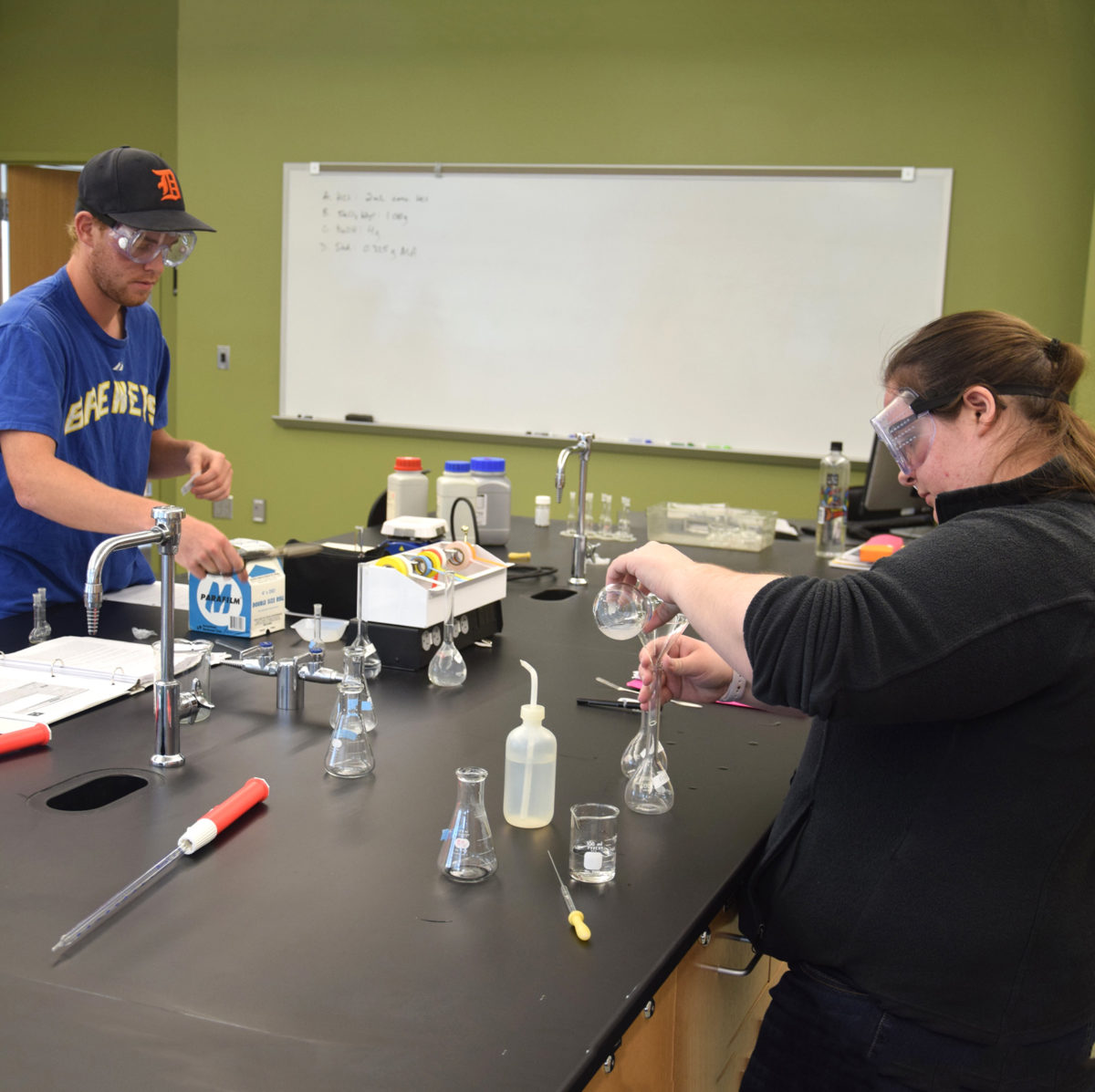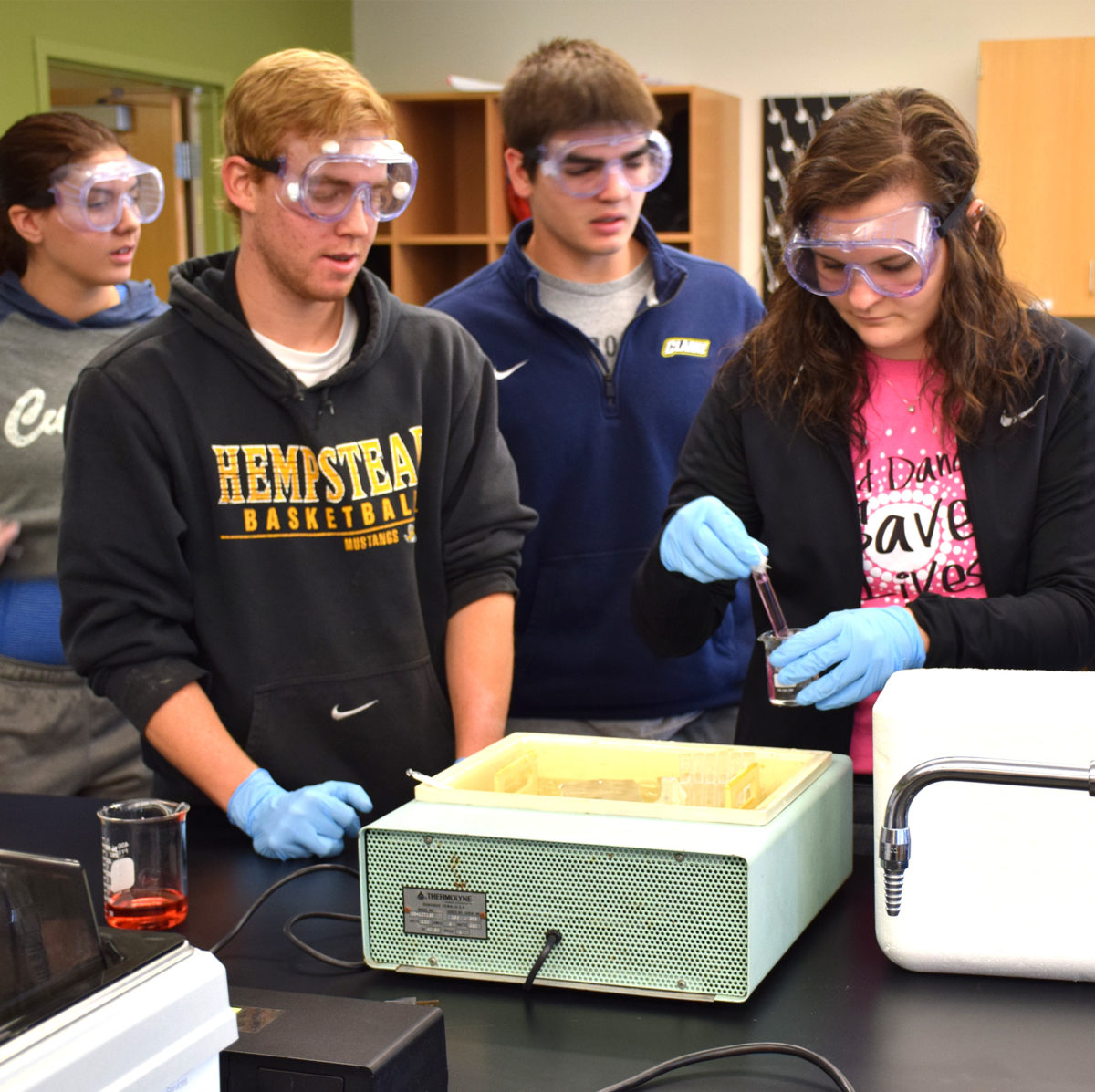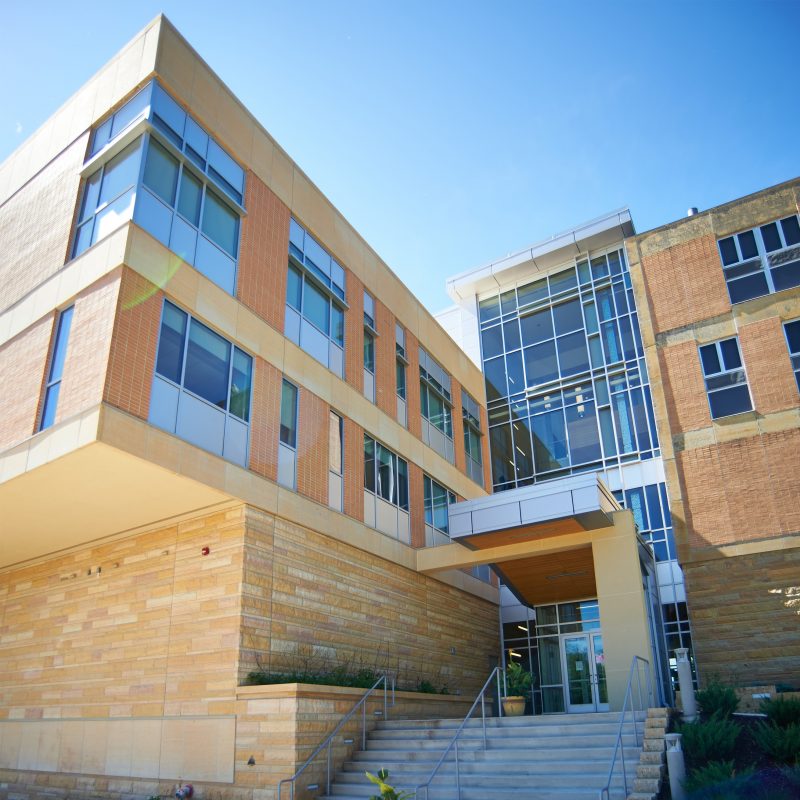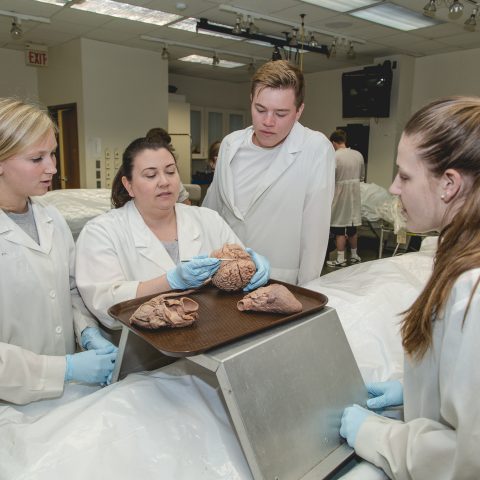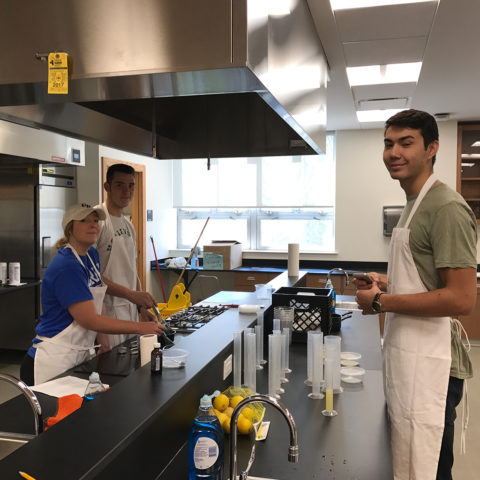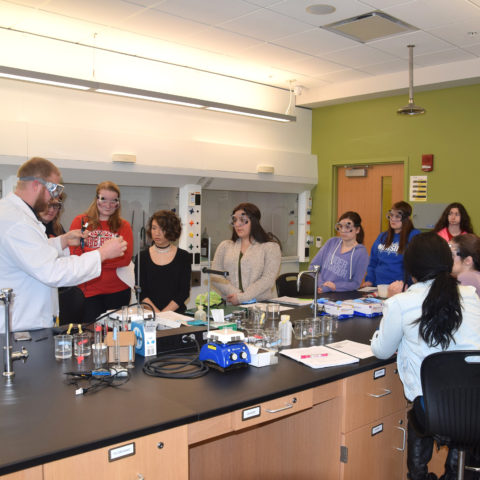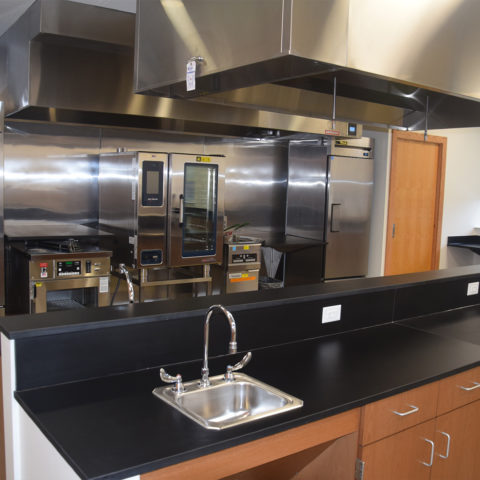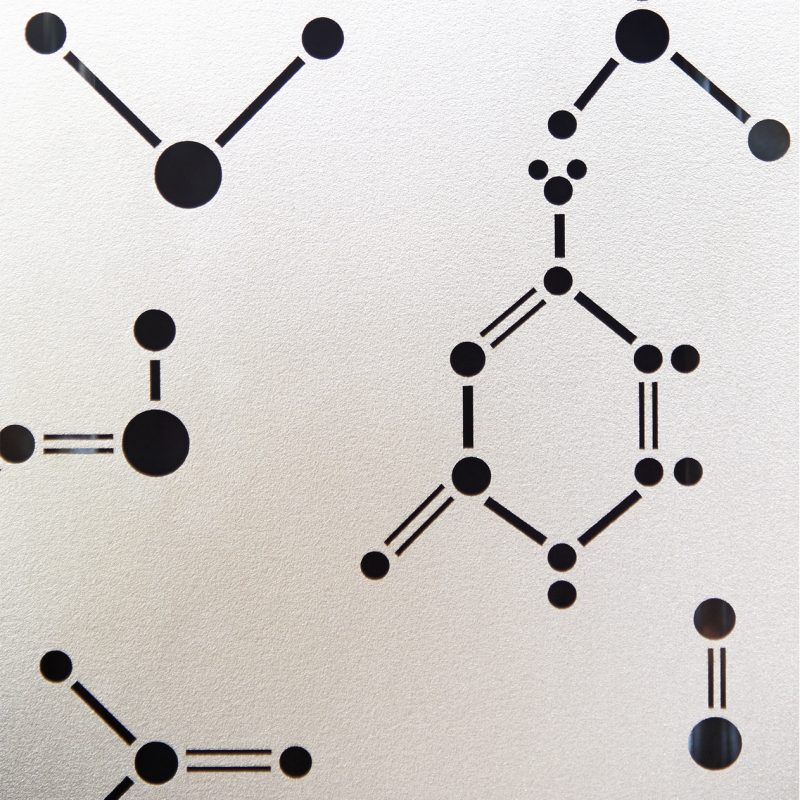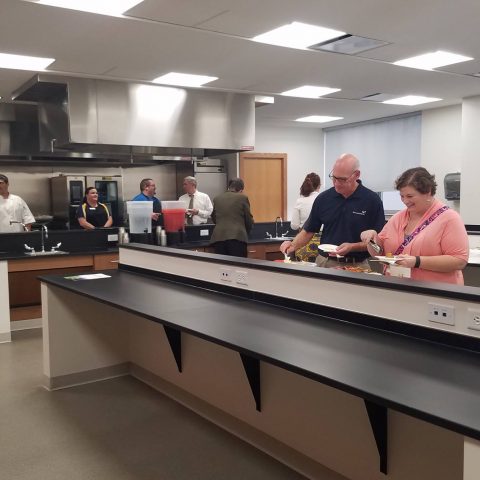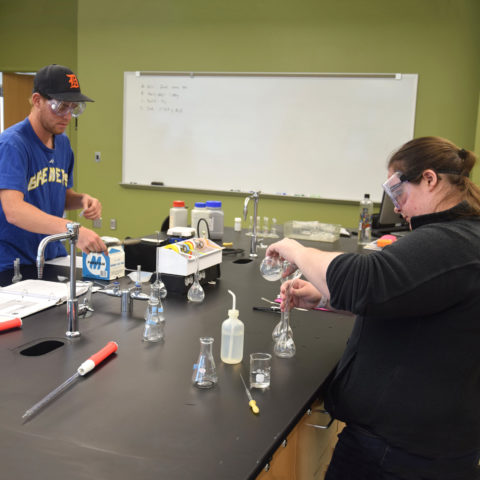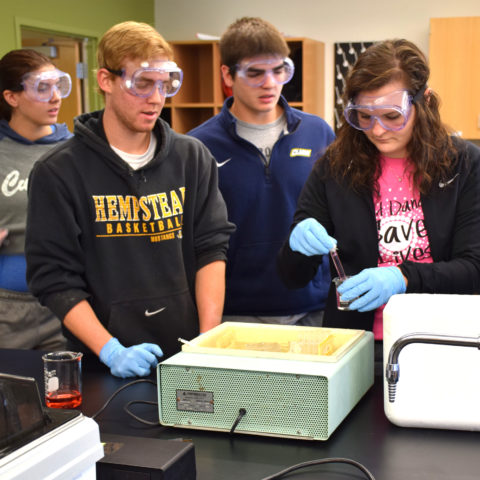Facilities & Equipment
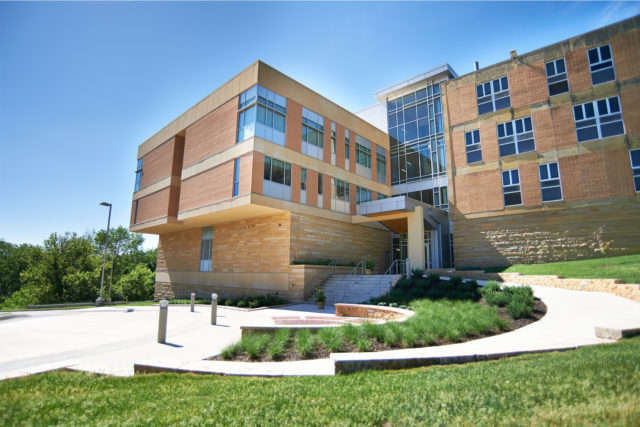
Clarke’s 46,000-square-foot, three-story Marie Miske Center for Science Inquiry opened in August of 2013. The facility along with updates in Catherine Byrne Hall, provide flexible and modern spaces designed to seamlessly integrate lecture and lab areas while fostering a collaborative, hands-on learning environment. The result is access to the most up-to-date teaching and experimentation practices implemented by Clarke’s expert faculty.
The science facility also offers informal gathering spaces to enhance collaboration and creates an atmosphere in which you can easily move from a casual study group in a common area to a very specific research project in an advanced lab. It is a state-of-the-art facility that offers everything you need to achieve academic success in the sciences.
SPECIALIZED LAB SPACES
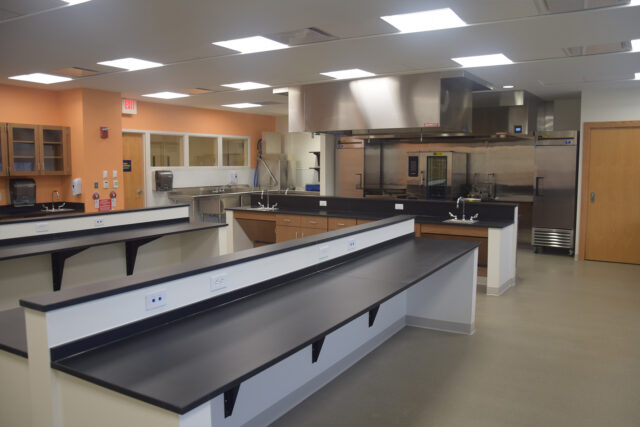
FOOD SCIENCE LABORATORY
The 2,250-square-foot Food Science Lab is the first of its kind in the tri-state area. It includes equipment to train you on everything from food preparation, to taste testing and evaluation, to food analysis, where you can break down the chemical, physical and composition of food.
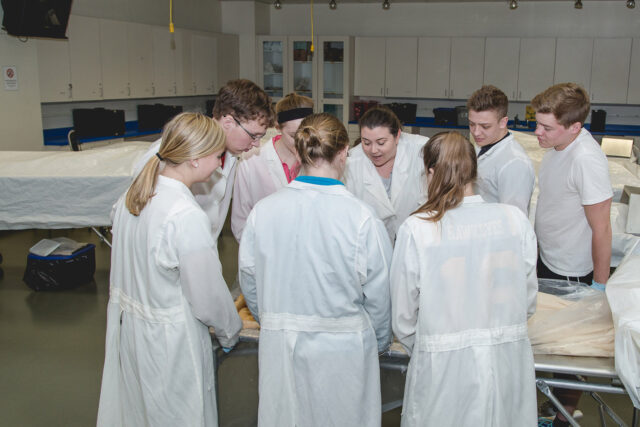
10-TABLE CADAVER LAB
Clarke University is one of the few liberal arts institutions of our size in the country to have a 10-table cadaver lab. Graduate and undergraduate students will use this medical school quality space to understand real surgical techniques, enhance anatomy and physiology education, and more.
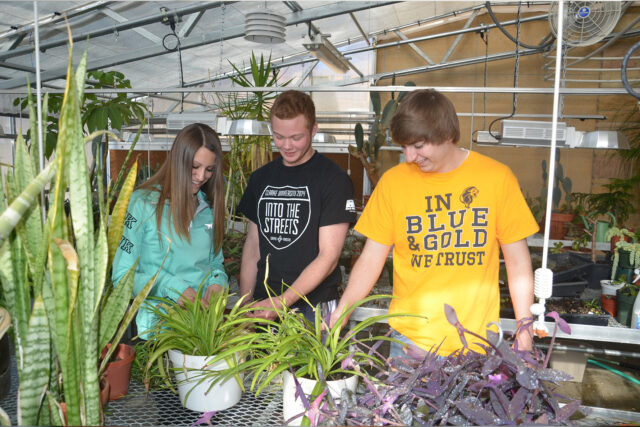
HIGH-TECH GREENHOUSE
Much more than a backyard greenhouse, this state-of-the -art space allows for precise technical adjustments and automation to temperature, humidity, water schedules, and more. You’ll experience amazing biodiversity and conduct botanical research, even in the heart of an Iowa winter.
CHEMISTRY INSTRUMENT LAB
This lab boasts a new FT-IR, ATR and GC-MS, and is equipped with adjustable snorkel exhausts, which allow for safely working with chemicals right from the bench top.
NMR SPECTROMETER ROOM
A nuclear magnetic resonance (NMR) spectrometer is an instrument that, in a sense, takes an MRI of a molecule. For this reason, NMR is the leading tool in the field of chemical characterization.
ANALYTICAL CHEMISTRY LAB
The Analytical Chemistry Lab is directly attached to the Instrumentation Lab for greater convenience and safety during these studies. Here you will study the study of the separation, identification, and quantification of the chemical components of materials.
ORGANIC CHEMISTRY LAB
The new Organic Chemistry Lab has nine state-of-the-art fume hoods along with an easy to use and access vacuum and distilled water filtration systems.
GENERAL CHEMISTRY LAB
This lab was designed into pods of benches so that students can easily move from working alone to assembling into groups, and to provide faculty with ample room to move between stations and better interact with students.
COMPUTATIONAL ANALYSIS CLASSROOM
This room houses 12 new computers, with widescreen monitors, and is used for analysis of experimental data and computational modeling. The room is specifically arranged to allow faculty to easily interact with and monitor students as they work at their stations.
STUDENT RESEARCH LAB
Students have their own space to conduct research, and with computer chip door access, students will be able to work independently and when it fits their schedule.
HUMAN PHYSIOLOGY LAB
The Human Physiology Lab contains Biopac modules, which allow students to perform recordings such as electromyograms, electrocardiograms, and electrooculograms on each other. Additionally, the space is large enough for students to perform exercise trials, such as running and cycling.
SIMULATOR LAB
First year students are exposed to various nursing specialties and learn how a nurse performs basic skills through a hands-on experience with a high-fidelity simulator.
MICROSCOPY SPACE
Home to a state-of-the-art fluorescence microscope, this space is used by classes and for independent research projects to understand structural and functional analyses at the cellular level.
Take a look for yourself
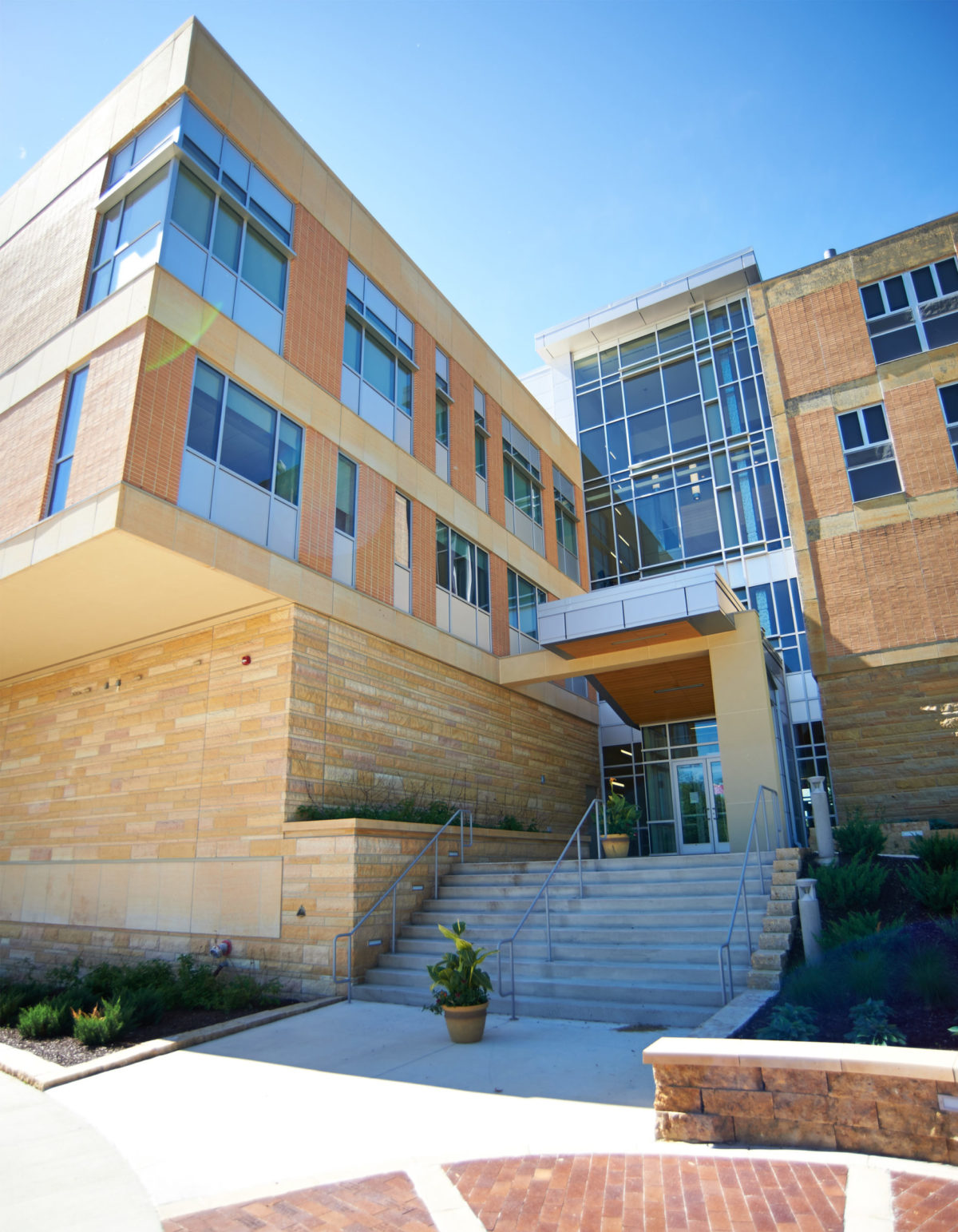
Marie Miske Center for Science Inquiry
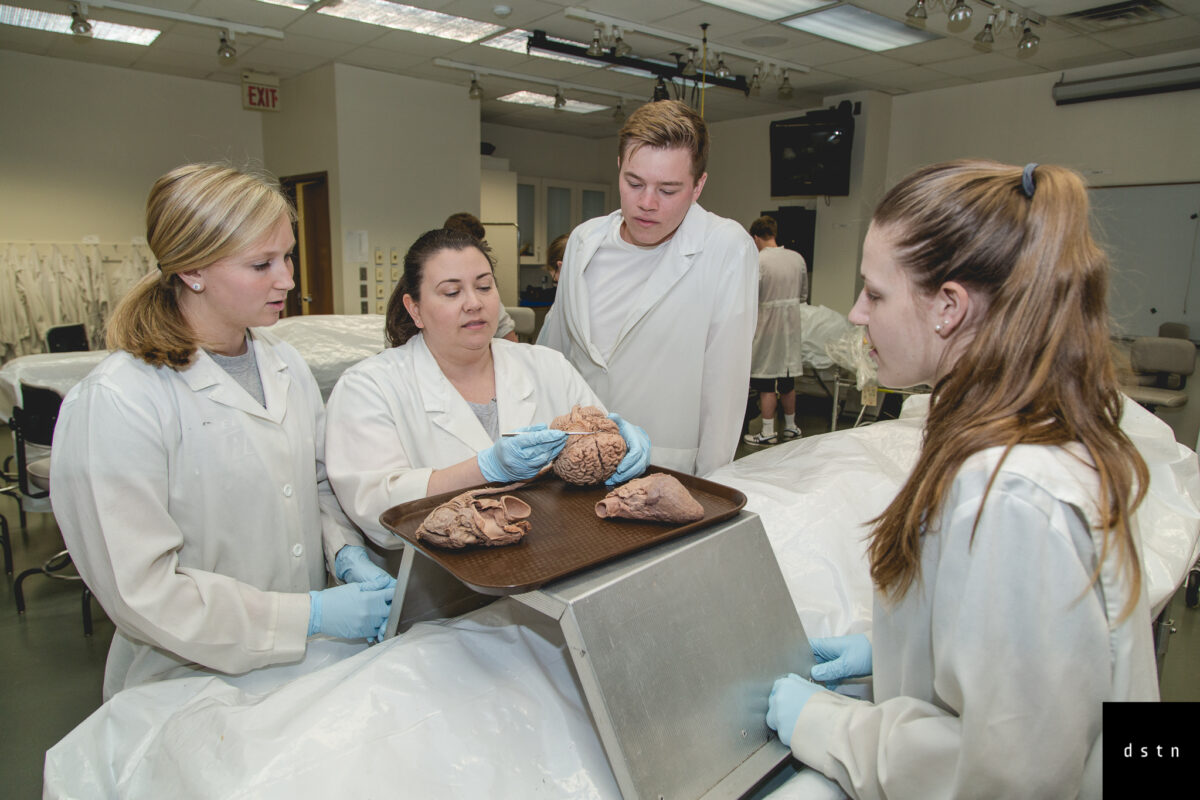
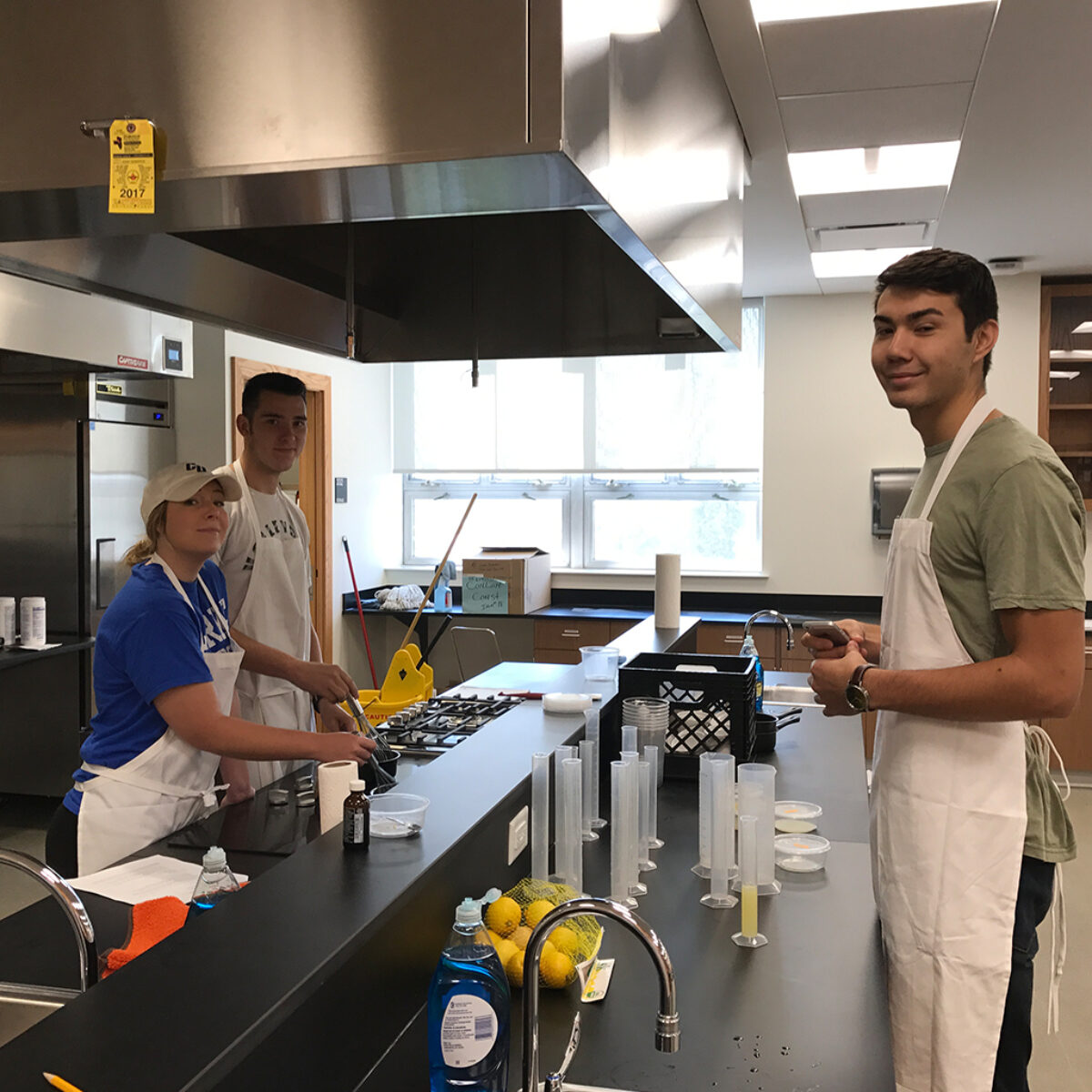
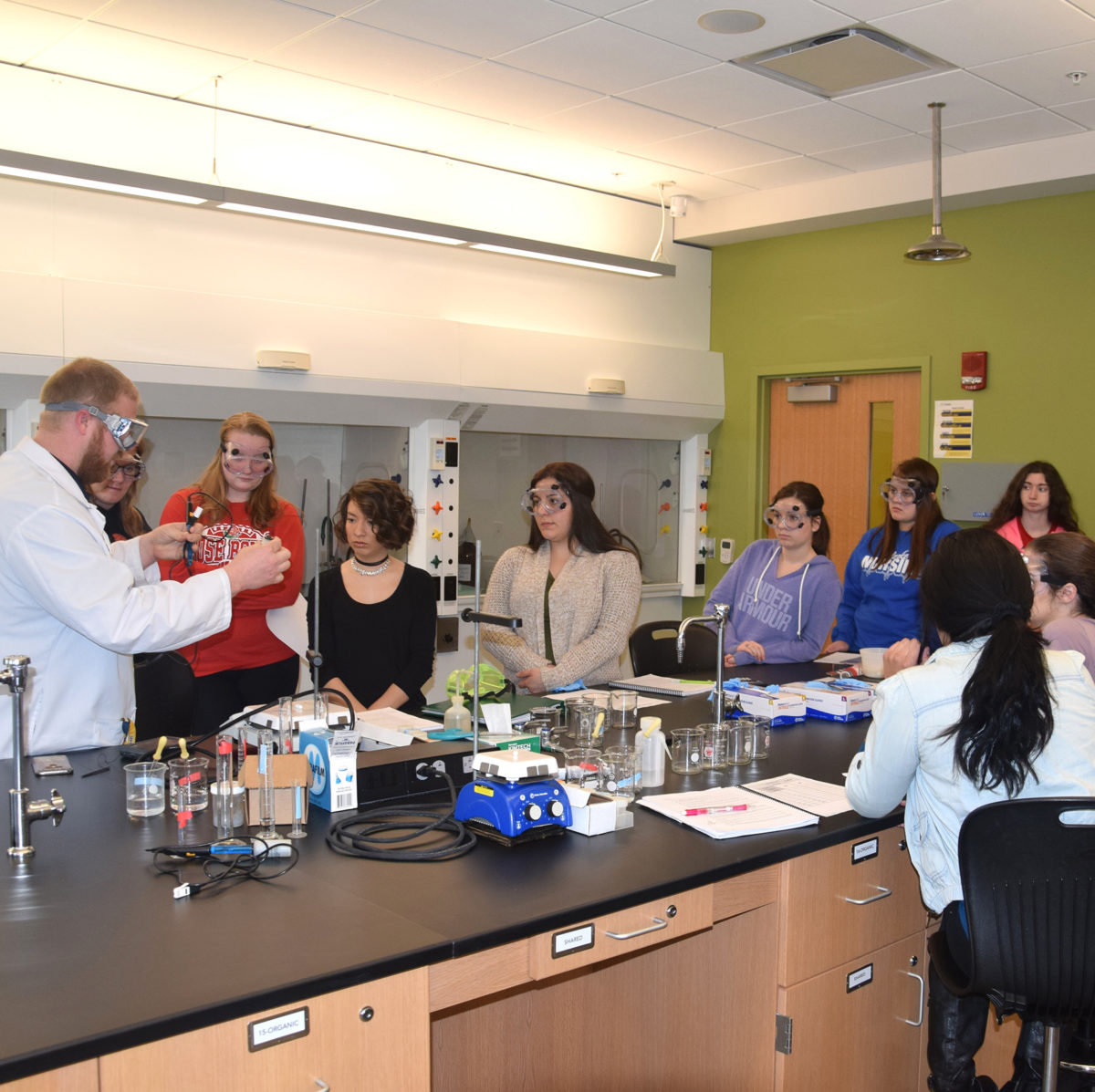
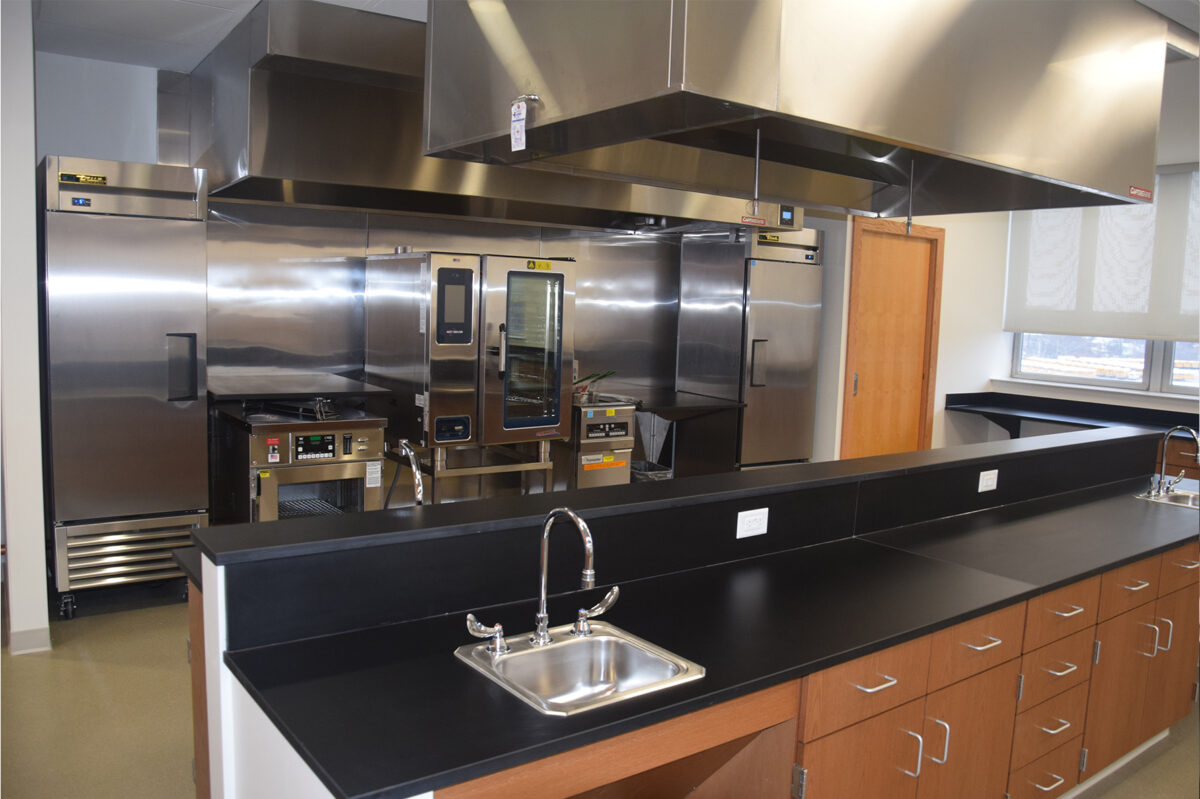
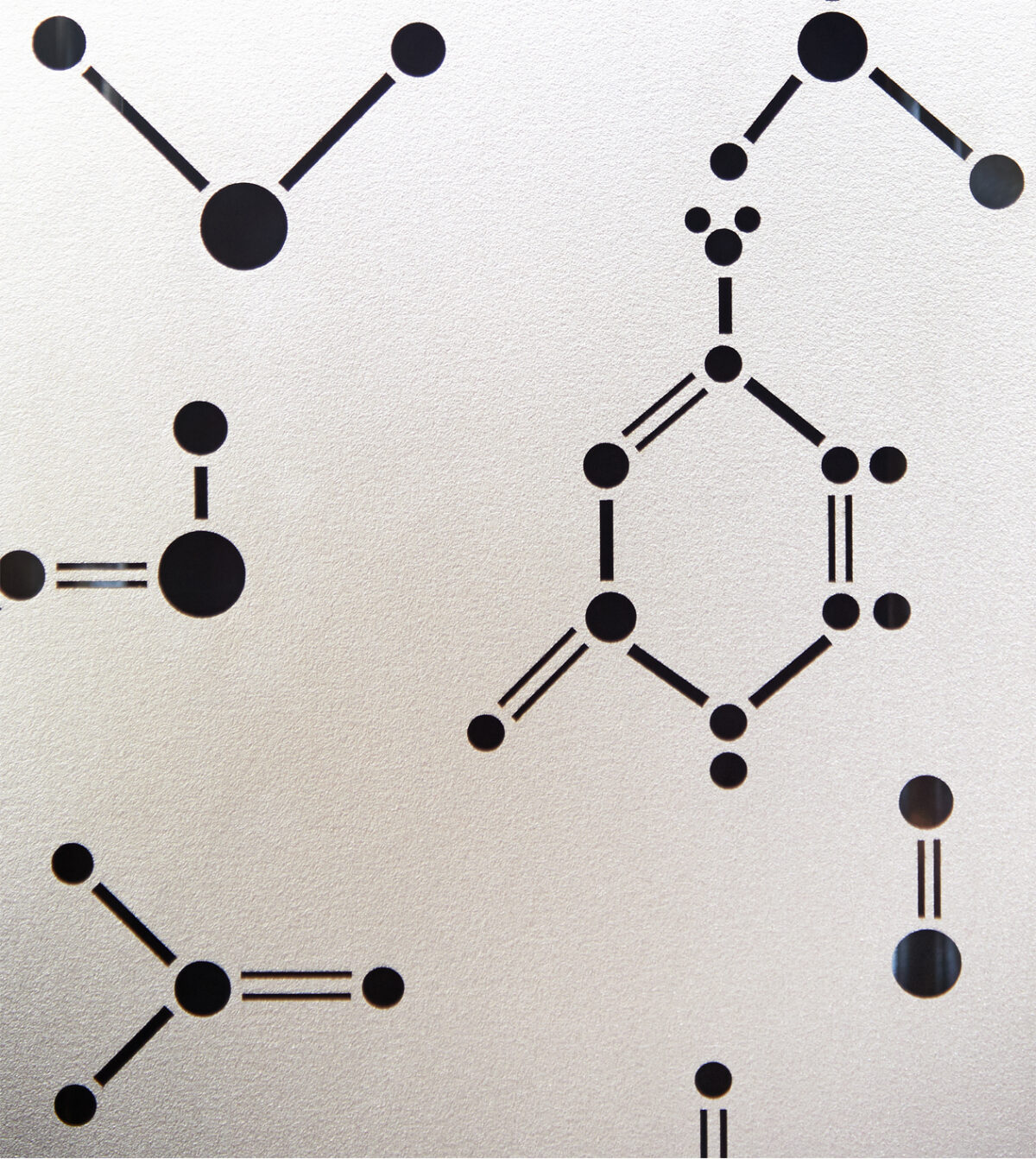
Marie Miske Center for Science Inquiry DNA
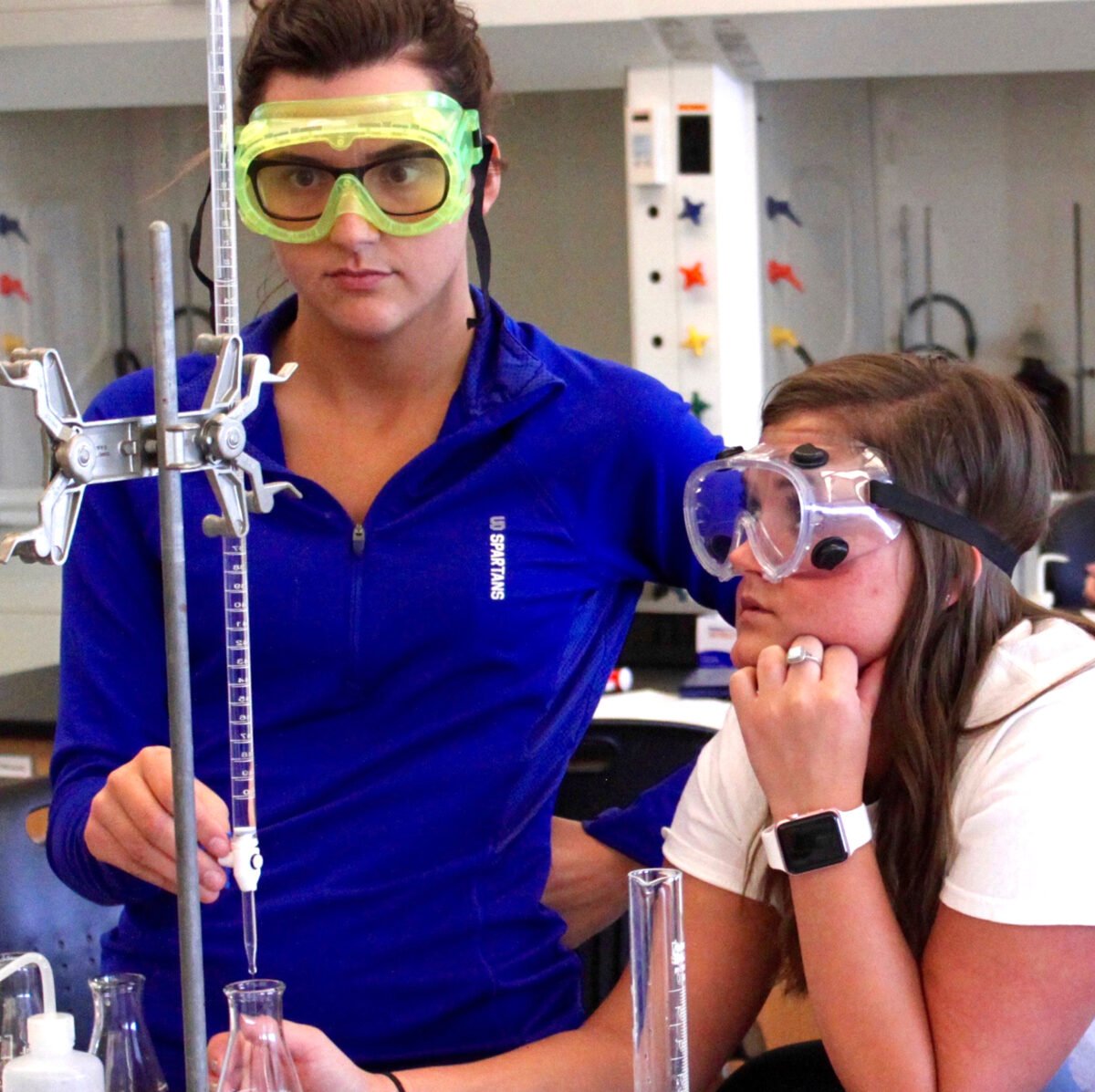
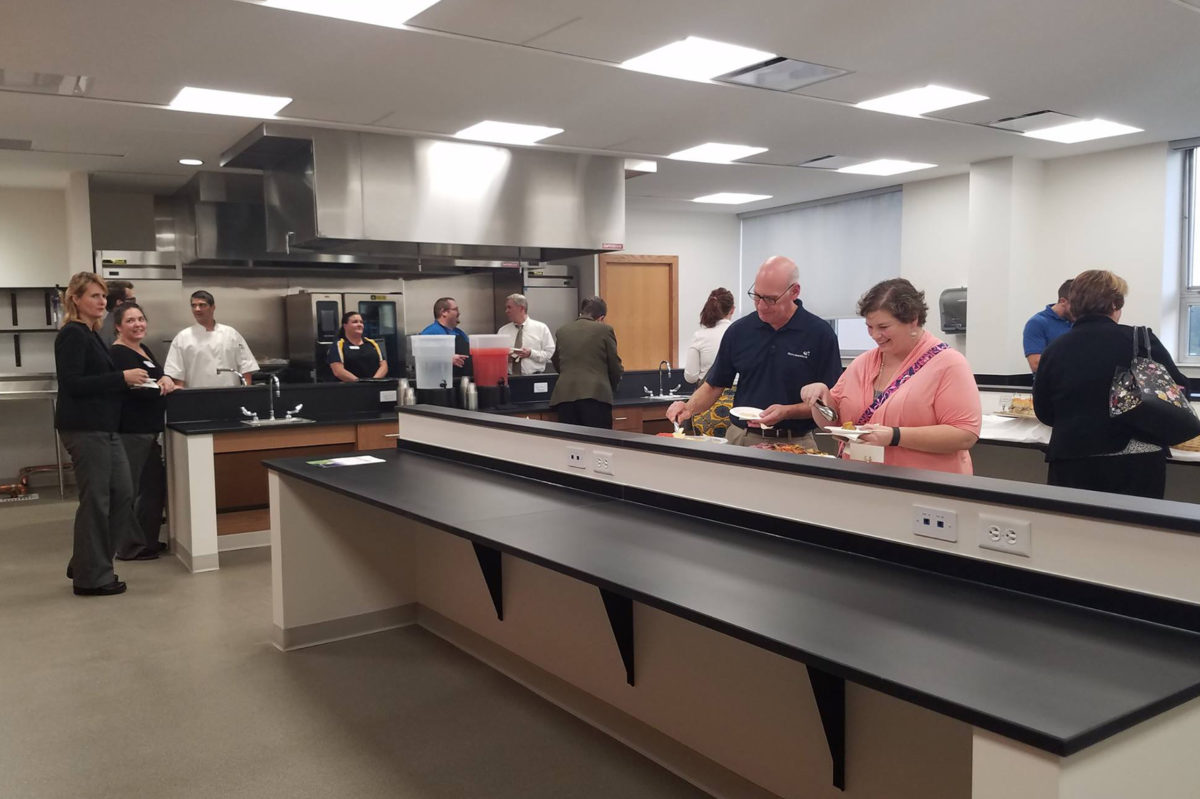
Food Science Lab
